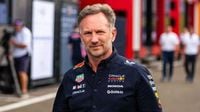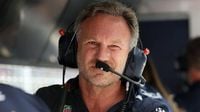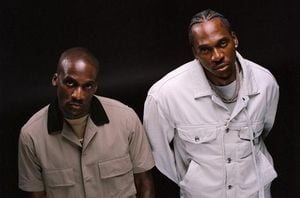Christian Horner’s long and storied tenure as Red Bull Racing’s team principal came to a stunning end on July 9, 2025, when the 51-year-old was abruptly sacked after two decades at the helm. Having guided Red Bull from its inception in 2005 to unprecedented heights in Formula 1, Horner’s departure marks the close of one of the sport’s most remarkable leadership eras amid a backdrop of internal turmoil and a challenging season for the team.
Appointed at just 31 years old, Horner was the youngest team principal in F1 history when Red Bull took over the Jaguar team in early 2005. Over the years, he masterminded a transformation that turned a fledgling outfit into a dominant force. Under his stewardship, Red Bull clinched eight drivers’ championships and six constructors’ titles, boasting 124 Grand Prix victories, a testament to his leadership and strategic vision.
Two distinct periods of dominance defined Horner’s reign. The first came with Sebastian Vettel, who won four consecutive drivers’ titles from 2010 to 2013, alongside Red Bull’s constructors’ supremacy. The second era was led by Max Verstappen, who secured four straight drivers’ championships from 2021 through 2024, while Red Bull claimed constructors’ titles in 2022 and 2023. Horner’s ability to build and maintain a winning team was unmatched in modern F1.
However, the last 18 months of Horner’s leadership were marked by turbulence both on and off the track. In February 2024, he faced allegations of sexual harassment and coercive behaviour by a female employee. Though Horner was cleared twice following thorough internal investigations and an appeal dismissal in August 2024, the accusations deepened divisions within the team and its ownership structure.
Red Bull’s ownership is split between the Mateschitz family (49%) and Thai majority shareholder Chalerm Yoovidhya (51%). Yoovidhya had stood firmly behind Horner during the investigations, but sources reveal his support eventually waned, contributing to the decision to remove Horner. The internal politics of the team, combined with a decline in performance, culminated in the dramatic leadership shake-up.
On the sporting front, Red Bull’s dominance has waned. The 2025 season has been particularly challenging, with McLaren emerging as the team to beat. Red Bull have managed only two wins this year, and Verstappen, despite being the team’s standout performer with 165 of their 172 points, trails championship leader Oscar Piastri by 69 points at the halfway stage. The team currently sits fourth in the constructors’ standings, a significant drop from their recent peaks.
Adding to the instability, Red Bull has seen a wave of high-profile departures. Legendary technical director Adrian Newey left for Aston Martin last year, citing dissatisfaction with internal politics and a diminishing role. Sporting director Jonathan Wheatley moved to Sauber, and head of strategy Will Courtenay is set to join McLaren, although Horner has been holding him to his contract. These exits have left a vacuum in key areas of the team’s operations.
Compounding the drama has been a fractious relationship between Horner and the Verstappen family. Jos Verstappen, Max’s father, had a tense rapport with Horner and publicly warned that the team would suffer if Horner remained after the harassment allegations. Verstappen himself has been unsettled by the internal discord, preferring a harmonious working environment. While Verstappen remains under contract until 2028, Mercedes has reportedly been courting him, especially given his exit clause tied to performance this season.
Horner was informed of his dismissal on the evening of July 8, 2025. The following morning, he addressed Red Bull’s staff at their Milton Keynes headquarters in an emotional speech, expressing gratitude for the two decades he spent building the team. “When I arrived 20 years ago, there were a few less grey hairs,” Horner reflected tearfully. “I walked into a team and did not know what to expect but I was immediately welcomed and we started to build what became a powerhouse in F1. Watching and being part of this team has been the biggest privilege of my life.”
Red Bull’s managing director Oliver Mintzlaff paid tribute to Horner’s contribution: “We would like to thank Christian Horner for his exceptional work over the last 20 years. With his tireless commitment, experience, expertise and innovative thinking, he has been instrumental in establishing Red Bull Racing as one of the most successful and attractive teams in Formula 1. Thank you for everything, Christian, and you will forever remain an important part of our team history.”
Max Verstappen also took to social media to thank Horner, writing: “From my first race win, to four world championships, we have shared incredible successes. Winning memorable races and breaking countless records. Thank you for everything, Christian!”
Horner’s successor is Laurent Mekies, 48, who has been promoted from his role as team principal of Red Bull’s sister team, Racing Bulls. Mekies, a Frenchman with a rich F1 pedigree including stints at Ferrari and the FIA, steps into the role with immediate effect. Mekies expressed excitement about leading Red Bull Racing, calling it “an honour to be part of this group of brilliant people that embody the Red Bull spirit.”
Alan Permane, previously racing director at Racing Bulls, has been promoted to team principal of the junior team. He acknowledged the trust placed in him by Mintzlaff and Red Bull advisor Helmut Marko and vowed to continue the progress made under Mekies.
The timing of Horner’s exit, mid-season and ahead of the Belgian Grand Prix, has sent shockwaves through the paddock. Horner, who never missed a race in 20 years, will not be present at the Spa-Francorchamps event for the first time since 2004. His departure concludes an intense 18-month power struggle within Red Bull, with performance issues, internal politics, and fractured relationships all playing a part.
Looking ahead, Verstappen’s future remains uncertain. While his manager insists he is committed to Red Bull, Mercedes boss Toto Wolff has openly monitored the possibility of signing the Dutch star. Verstappen’s exit clause based on championship standings adds a layer of intrigue as the season progresses.
As for Horner, speculation about his next move is rife. He has been linked with potential roles at Ferrari and Alpine, with the latter offering a UK-based option closer to home. Some commentators suggest he may take time out or pursue opportunities as a team owner or investor, following in the footsteps of figures like Mercedes’ Toto Wolff.
Red Bull now faces the challenge of regrouping under Mekies’ leadership. With a new engine regulation coming in 2026 and a history of bouncing back from adversity, the team’s resilience will be tested. For Horner, the legacy he leaves behind is immense—a powerhouse forged from humble beginnings, a trophy cabinet bursting with silverware, and an indelible mark on Formula 1 history.





